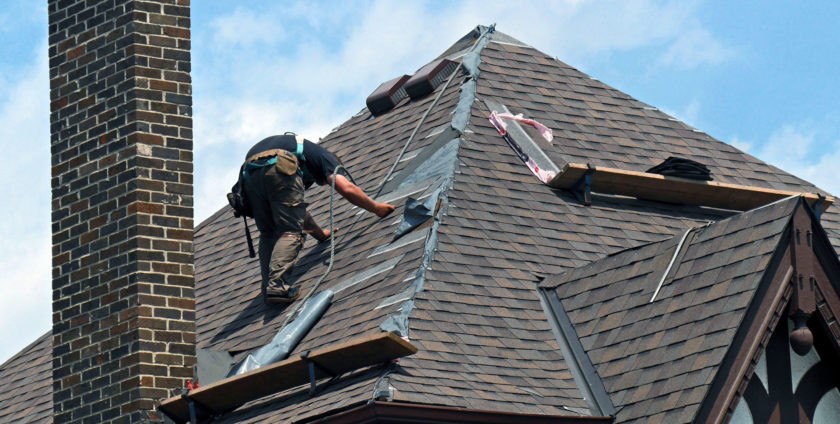The efficiency, safety, and wellbeing of a construction workforce should be top priorities for construction project managers. Portable accommodation is a solution that addresses many issues that can arise in construction projects and adds value in several ways. Portable accommodation units, such as site sleeper cabins, toilets, showers, and more, offer a versatile and practical approach to managing on-site requirements.
This blog post outlines the benefits that portable accommodation brings to construction environments and explains its significance in meeting health and safety criteria.
The benefits of portable accommodation in construction
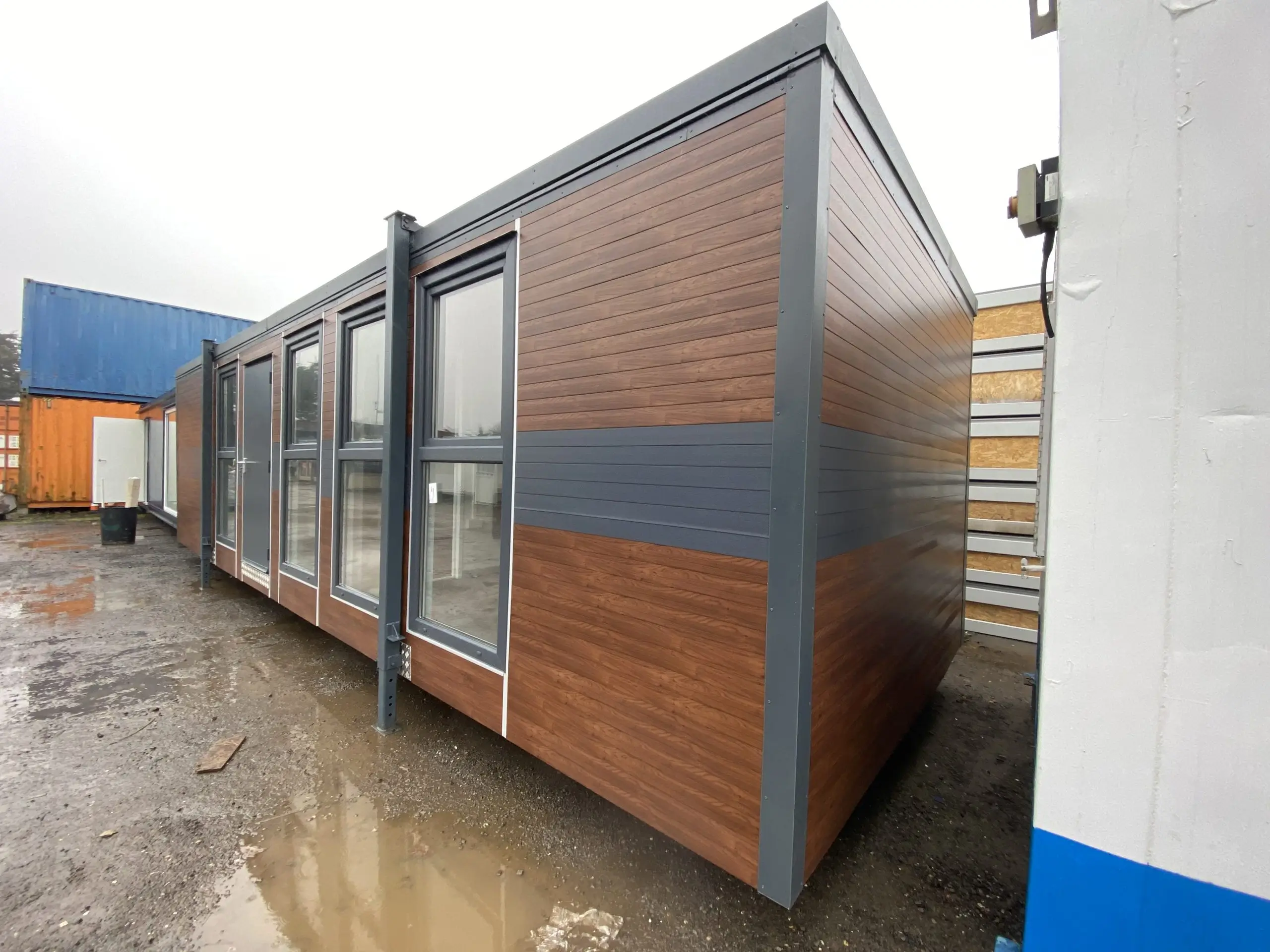
source: jcps
The UK’s construction industry is governed by a legal framework designed to ensure the safety and wellbeing of workers. Legislation such as the Health and Safety at Work etc. Act 1974 and the Construction (Design and Management) Regulations 2015 set out clear requirements for welfare facilities on construction sites. Portable accommodation can help to fulfil some of these requirements and offer compliant solutions for rest areas, toilets, and first aid facilities. This not only helps in adhering to legal standards but also in promoting a culture of health and safety on construction sites.
One of the most significant advantages of portable accommodation in terms of efficiency is its inherent flexibility and scalability. Construction projects are dynamic, with needs that can change rapidly as the project progresses. Portable accommodation units can be easily added, removed, or rearranged to suit the evolving requirements of a project. This adaptability ensures that construction managers can respond promptly to changing demands without the delays and costs associated with permanent builds.
The use of portable accommodation on construction sites presents a cost-effective solution for managing the logistics of temporary work environments. The expense associated with erecting and dismantling permanent structures can be substantial, not to mention the time required for such processes. Portable accommodation, on the other hand, offers a swift and efficient alternative that significantly reduces both direct and indirect costs. By minimising construction and decommissioning times, projects can adhere more closely to budgets and timelines.
The proximity of workers to their workplace is another important factor in project efficiency. Portable accommodation units stationed on-site can dramatically reduce travel time for workers, which may facilitate earlier starts. This not only maximises the workday but also contributes to a more satisfied workforce, as the convenience of on-site accommodation can significantly improve workers’ quality of life during the project duration.
Key features of portable accommodation for construction sites
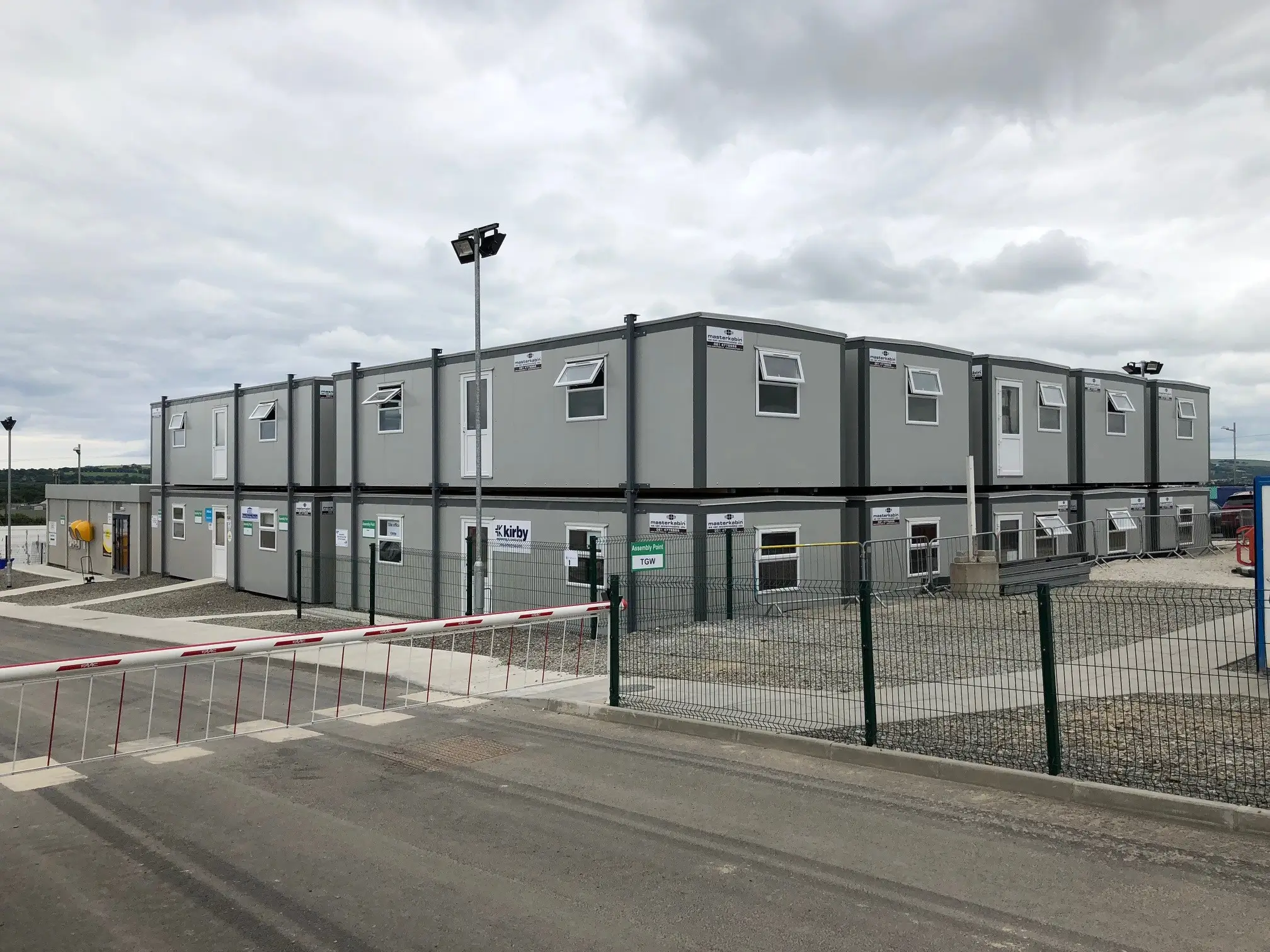
source: masterkabin
Site Sleeper cabins provide a comfortable and secure living space for workers, which may be particularly beneficial on remote or large-scale projects where daily commuting is impractical. These cabins can be equipped with beds, heating, lighting, and electrical outlets, to ensure that workers have a restful environment close to their workplace. The availability of on-site sleeper cabins can also enhance the flexibility of work schedules, and accommodate shifts that span early mornings or late evenings.
Portable toilets and showers offer convenience and hygiene for the workforce. These units can be quickly deployed and relocated as necessary, meaning that even as the construction project evolves, the basic needs of workers are consistently met. Moreover, maintaining high standards of sanitation through these facilities can help prevent health issues, and result in fewer absences and a more productive work environment.
Beyond sleeper cabins and sanitary facilities, portable accommodation covers a range of specialised units designed to support various aspects of construction site operations. These include:
- Offices: portable office units provide a dedicated space for project management, planning, and administrative tasks, to give the project team the necessary infrastructure to work efficiently.
- Canteens: offering on-site dining facilities can significantly benefit workers, by providing them with convenient access to meals and a space to relax during breaks.
- Secure storage: portable units designed for secure storage allow for the safekeeping of tools, equipment, and materials, and mitigate the risk of theft and damage.
The versatility of portable accommodation solutions means that they can be tailored to meet the specific needs of any construction project, and contribute to a well-organised, efficient, and compliant site.
Environmental and social considerations
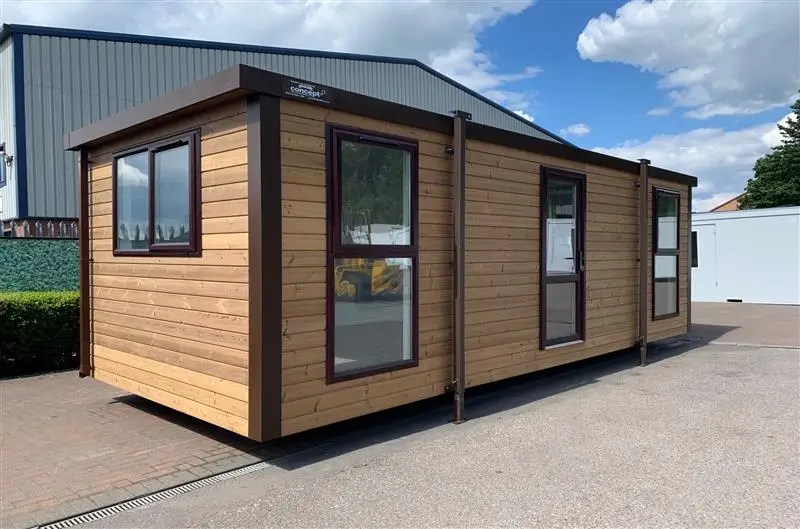
source: conceptcabins
Sustainability is increasingly at the forefront of industry considerations, and portable accommodation offers an environmentally friendly alternative to permanent construction. The ability to reuse and recycle these units across multiple projects reduces waste and decreases the environmental impact associated with construction. Additionally, the energy efficiency of modern portable units can be significantly higher than that of older temporary or even permanent buildings, which can help to reduce the carbon footprint of construction projects.
The use of portable accommodation can also have a positive impact on the relationship between construction projects and the surrounding community. By minimising the physical footprint and visual impact of temporary structures, these solutions can help to reduce disruption and preserve the aesthetic of the area. This is particularly important in urban or residential settings, where the presence of construction activity can be a significant source of contention. Effective management of construction sites using portable accommodation can thus play a crucial role in maintaining good community relations.
Choose portable accommodation for your construction project
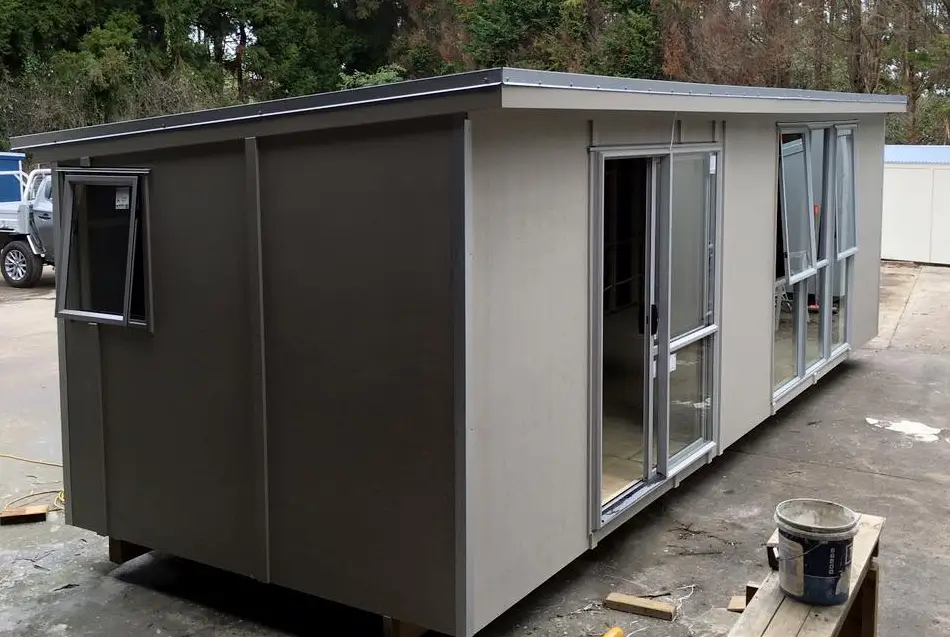
source: shedlove
For construction project managers, planners, and decision-makers, the advantages of portable accommodation are clear. Consider how these solutions can enhance your operations, meet legal and safety requirements, and contribute to your project’s overall success. Embrace the flexibility, efficiency, and sustainability that portable accommodation can bring to your construction sites.
By prioritising worker welfare, legal compliance, and operational efficiency, the industry can continue to thrive and contribute to the UK’s infrastructure and economic development.


